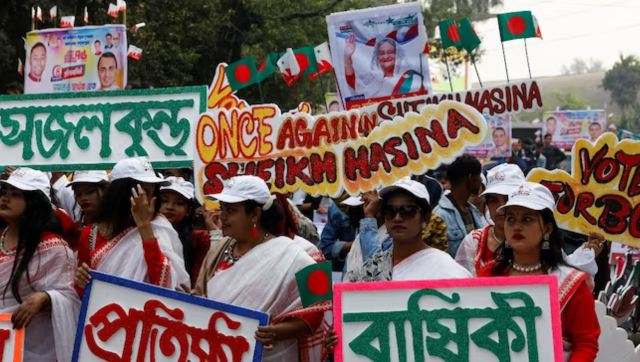The Bangladesh government has slammed sections of the international media over alleged disinformation regarding the arrest of opposition party leaders ahead of elections in the South Asian country. In a statement, the Bangladesh government also blamed the Bangladesh Nationalist Party (BNP) - the main opposition in the country - of spreading ‘fabricated and baseless information’. “We have noticed that the New York Times and the Asian Network for Free Elections (ANFREL) are misleading the international community with wrong information about the political situation in Bangladesh. The publication of fabricated and baseless information by the media cell of Bangladesh Nationalist Party (BNP) in international media and institutions without any verification is contrary to objective journalism,” the statement read. “They say since October 28, 2023, more than 21,000 BNP-Jamaat leaders and workers have been arrested and nine have died in custody. They have no basis for such information. The total number of prisons in Bangladesh is 68. According to the information provided by the prison department, the number of prisoners in all the prisons today is 80 thousand 097. On December 31, 2021, the number of prisoners was 80 thousand 871 people, on the same day of 2022 there were 80 thousand 537 people and on the last day of 2023 there were 83 thousand 689 people. Compared to previous years, the number of prisoners on the last day of 2023 was almost the same,” the statement added. “From this information it is understood that the number of additional prisoners of 21 thousand leaders and workers of BNP is not correct. Additional inmate information is incorrect. This is propaganda.” The Bangladesh government alleged that there was no law and order problem in the country before a pre-election campaign by the BNP led to a spike in political violence. During the period July-September 2023, an average of 565 cases were registered and 1 thousand 956 people were arrested in police stations in Bangladesh. Even if there is no political tension or conflict, the average number of cases filed and arrests in each police station in Bangladesh remains at this level. But since the BNP’s subversive political program was strengthened on October 28, 2023, an average of 438 cases have been entered and 1,816 arrests have been made every day since November 22," the statement said. “After the unprecedented BNP-Jamaat terror attack on October 28, the number of arrests increased, but the number of cases of other crimes decreased. According to the sources of the Directorate of Prisons, from 26/10/23 to 05/01/24, the police arrested a total of 20,46 people on the charges of explosives, sabotage, murder, attack on journalists, car vandalism and following the same judicial process, 10,000 997 people were released on bail. Today on 06/01/24, a total of 9 thousand 49 prisoners are in jail in this related case,” it added. On October 28, during an opposition party protest calling for Prime Minister Sheikh Hasina’s resignation and a free and fair election under a caretaker government, one police officer was slain in Bangladesh on Saturday and over 100 people were injured. The government rejected the demand, citing it as unconstitutional. Tens of thousands of supporters of the opposition Bangladesh Nationalist Party (BNP) gathered in the capital Dhaka, chanting anti-government chants, sparking skirmishes that resulted in the use of tear gas and rubber bullets by police. The statement went on to claim that there was no violence or repression of opposition workers and leaders inside jails in Bangladesh. “In October 2023, a total of 44 inmates died of natural causes due to physical ailments in prisons across Bangladesh, which was the same number in November. 42 people died in December. Apart from the brutal killing of the four national leaders, that is, the top leaders of the Bangladesh Awami League, on November 3, 1975, there has been no unusual death inside the jail,” it said. “No prisoner was ever tortured inside the jail as the prisoners had no political identity with the prison authorities. The names and addresses of the 9 BNP leaders-workers given by the New York Times and ANFREL were not given. The information they spread is baseless and motivated.”
Bangladesh slams global media, alleges disinformation over internal political situation
Ajeyo Basu
• January 7, 2024, 16:37:01 IST
The Bangladesh government blamed the Bangladesh Nationalist Party (BNP) - the main opposition in the country - of spreading ‘fabricated and baseless information’
Advertisement
)
End of Article